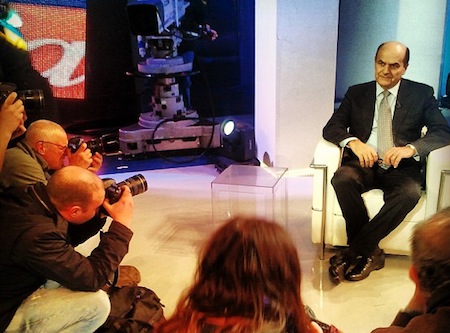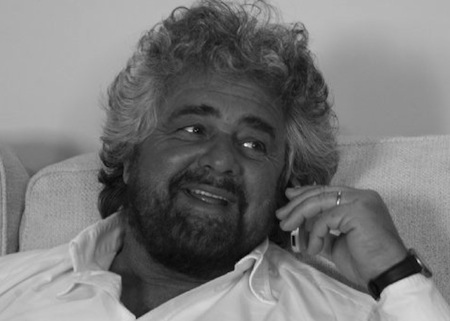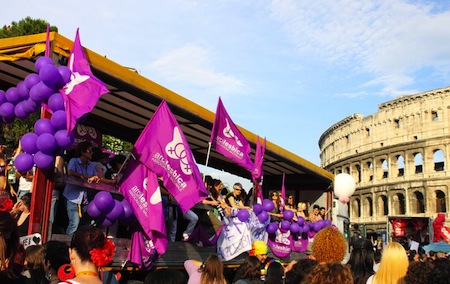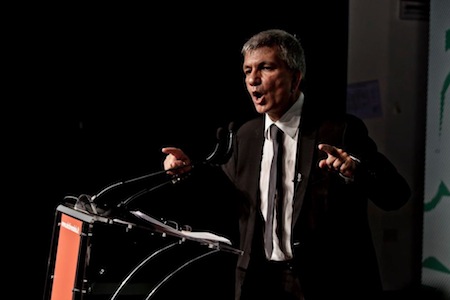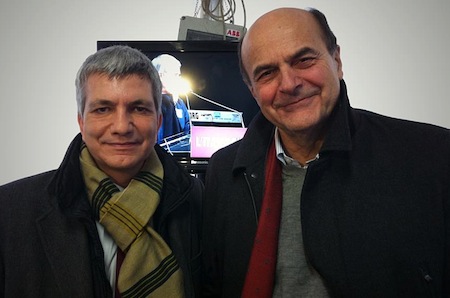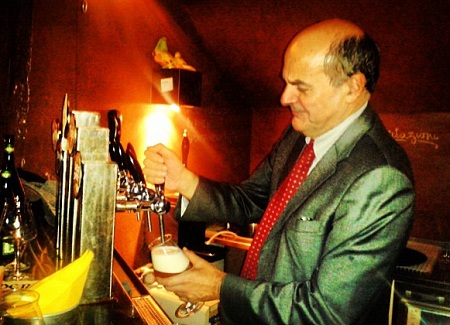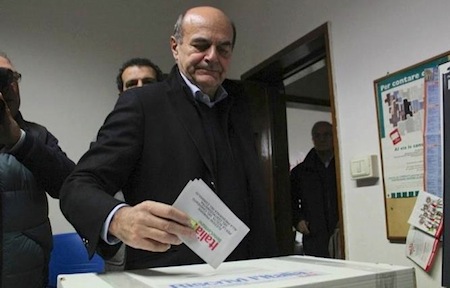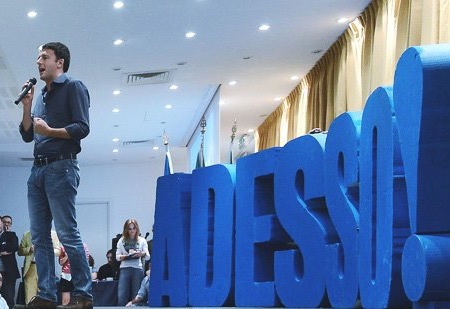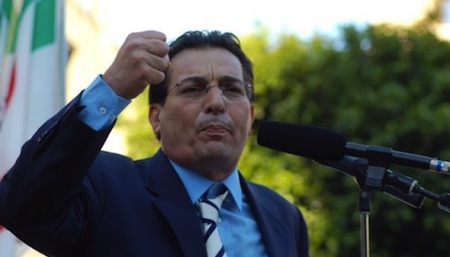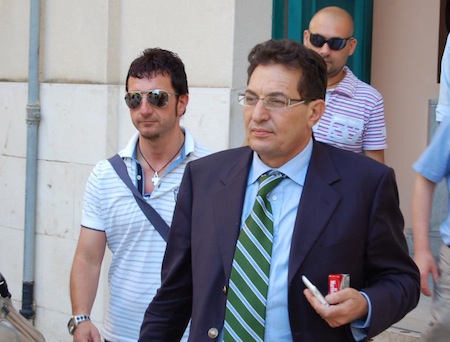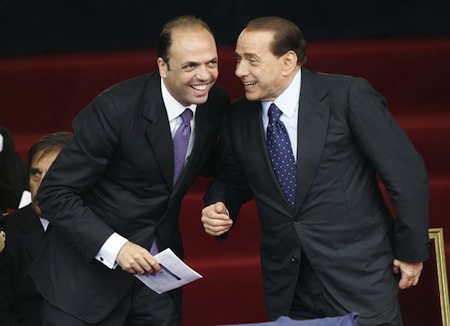Although we still don’t know exactly how the results of the weekend’s Italian election will turn out entirely, we know enough to say that Italy’s short-term future will be beset with gridlock.![]()
We know that, unless there’s a major change among the final results (very unlikely at this point, but still a possibility — La Repubblica‘s latest count shows a 0.4% gap between the two major coalitions), Pier Luigi Bersani will have led his broad centrosinistra (center-left) coalition to a victory in Italy’s lower house, the 630-member Camera dei Deputati (House of Deputies). That’s because the national vote winner of the lower house elections automatically wins at least a 54% majority of the seats in the lower house.
We know that, whatever the final result, both Bersani’s centrosinistra coalition and the centrodestra (center-right) coalition led by former prime minister Silvio Berlusconi will each hold between 110 and 120 seats or so in Italy’s upper house, the Senato, which is composed of 315 elected members and, currently, four additional ‘senators for life.’ (That’s because the majority ‘seat bonus’ is awarded to the winner of each regional vote rather than on a national basis like in the Camera dei Deputati).
It doesn’t really matter who holds the greatest number of senatorial seats, because no group or party will control enough seats in the Senato alone to form a majority government, including Bersani’s coalition.
So given Bersani’s lead in the lower house, whatever government emerges — if a government emerges — will have to include Bersani’s center-left bloc, with presumably Bersani heading the government as prime minister. In the short term, that puts Bersani in the driver’s seat but not, perhaps, for long.
None of Bersani’s options, frankly, are very stable, for either his center-left coalition or for Italy.
Given the ongoing eurozone sovereign debt crisis, the pressure will be on Bersani and on the entirety of Italy’s political elite, which now must be said to include Beppe Grillo and the leaders of the Movimento 5 Stelle (the Five Star Movement). Right now, Italy’s 10-year bond rate is 4.49%, much lower than the 7%-and-higher rates that led to the downfall of Berlusconi’s government in November 2011. But that could change — and fast — if Italy’s political leadership seems unable to form a government. Grillo and his allies are now stakeholders in ensuring that Italy doesn’t unravel.
If Bersani succeeds in forming a government at all, it will be less stable than any government in Italy’s so-called ‘second republic’ — i.e., the period from the early 1990s to the present that’s been characterized by the downfall of the former Christian Democrats during the 1992 Tangentopoli (‘bribesville’) scandal that implicated virtually all of Italy’s political elite, the emergence in 1994 of Silvio Berlusconi as the head of the mainstream Italian right, and the increasing consolidation of the mainstream Italian left through what’s now become the Partito Democratico (PD, Democratic Party).
Any Bersani-led government, at this point, will not only be less stable than Berlusconi’s governments, but even less stable than the four notoriously rocky governments of Italian prime ministers Romano Prodi, Massimo D’Alema and Giuliano Amato from 1996 to 2001 and Prodi’s short-lived and troubled return to government from 2006 to 2008.
In light of that bleak background, here are the four potential outcomes over the coming days that you should watch for:
Continue reading Where Italy goes from today’s elections: a look at four potential outcomes
